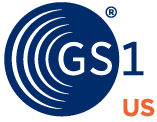Advanced users in the supply chain who are working in business and technical roles managing the product life cycle from creation through distribution and merchandising, including product management, supply chain operations, logistics, category management, shopper marketing, and more.
Unlock the Value of GS1 Standards in Your Supply Chain
Get ready for an engaging learning experience on the deeper layers of the GS1 System of Standards that goes beyond the basics of product and location identification. During this live instructor-led virtual classroom course, dive into advanced concepts and best practices relating to globally unique identification, the capturing of GS1 identification keys and attribute information, as well as the sharing of that information with trading partners.
Equipped with this advanced knowledge, you can:

Understand how the GS1 System of Standards enables efficiency in your supply chain

Take key learnings back to your organization to leverage for relevant use cases and business processes

Analyze the accuracy of your GS1 identification keys and the quality of your barcodes to prevent expensive mistakes
This course is offered in a live instructor-led virtual format over three business days, giving you the opportunity for dynamic interactions with your instructor and classmates. Additionally, self-paced eLearning modules will be preassigned to ensure all attendees have a foundational understanding of the key concepts covered in the course.
Earn a Professional Credential
Add Credibility to Your Resume With GS1 US Badges
You can earn an important credential in the use of GS1 Standards by successfully completing a GS1 US® certificate course. This badge is a testament to your commitment to professional development, making you a distinguished member of a global supply chain community. Display your badge on your online resume or social media profiles to showcase your expertise and stand out with your credential.

What to Expect
Step-By-Step Guidance on Principles and Benefits of the GS1 System of Standards
GS1 Identification Keys
Key considerations, best practices, and application of Global Trade Item Number® (GTIN®), Global Location Number (GLN), and Serial Shipping Container Code (SSCC) and overview of all other GS1® ID keys
Data Carriers
Application and uses of barcodes as well as radio frequency identification (RFID) tags in the GS1 System of Standards, with key considerations and best practices
GS1 Application Identifiers (AIs)
Format of AIs and use cases with explanation of variable-length vs. fixed-length data and best practices for encoding additional data in barcodes
Emerging Standards and Technology
GS1 Digital Link and industry’s transition to using 2D barcodes
Barcode Quality and Placement
Symbol print quality and standard symbol placement—why these are important, scanning vs. verification, etc.
Data Sharing
Electronic Product Code Information Services (EPCIS), Global Data Synchronization Network™ (GDSN®), and Electronic Data Interchange (EDI)
Enhance Your Team’s Skills and Save With Discount Pricing
Set your company up for success by expanding your team’s knowledge in the adoption and use of the GS1 System of Standards. The more seats you buy, the more you can save while also increasing your bench strength to provide accurate product data to your customers and trading partners. All attendees receive a full year’s access to course materials.
GS1 Foundations Certificate Course
Looking for a more intro-level course? The GS1 Foundations Certificate Course may be the answer if you need to start with a fundamental overview of product identification standards, how to assign and manage unique products and packaging levels via GTINs and barcodes, as well as the GLN.

Need More Help?
Please fill out this form to speak to a training specialist today! Or contact us at training@gs1us.org.
Please be advised that this content was created generally for GS1 Company Prefix holders. If you licensed a single GS1 identifier (i.e., GS1 US GTIN), we recommend evaluating this offering carefully to ensure its applicability to your business needs. The information provided is for educational purposes only and does not constitute legal or business advice.

$)
